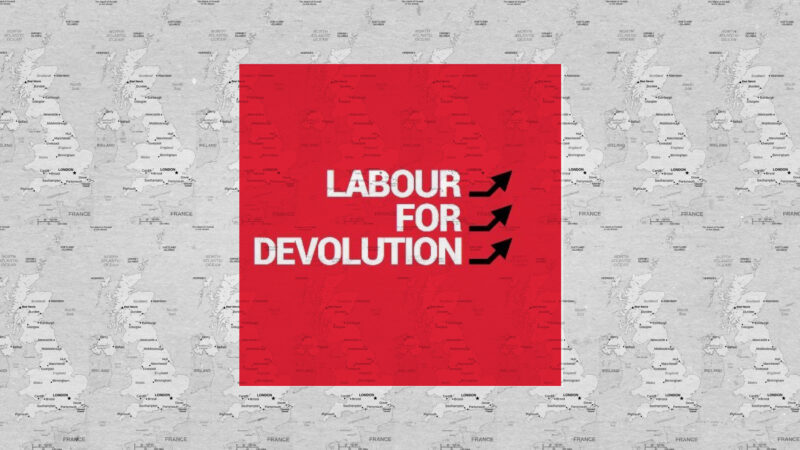
With contact tracing and lockdown easing set to repeat the tragic shambles of testing and personal protective equipment procurement, this government’s handling of coronavirus has been calamitous. But blame for the world’s worst excess death rate also lies with the British political system’s inherent dysfunction, which hands disproportionate power and responsibility to a few individuals in Westminster.
Coronavirus affects places in such wide-ranging ways that it cannot be managed from the centre, yet locally-led responses have been sidelined. Existing local testing capacity was overlooked in favour of new, privately-run and often inaccessible test sites and national targets prioritising quantity over quality. PPE was funnelled to the NHS, leaving councils scrambling to source equipment for care workers as domestic suppliers were ignored by central procurement. It is no coincidence locally-managed social care has borne the worst of the crisis, not centrally-managed healthcare.
Test-and-trace, announced with great fanfare from the Downing Street lectern, is far from operational because central government has more faith in its app and Serco than local public health teams experienced in contact-tracing infectious diseases. These local teams know the results of tests conducted at hospitals or by councils, but data from government-procured facilities is not being shared.
Over-centralisation is not just a liability for public health. Multiple studies show countries with greater local power have lower regional inequality, better public services and higher productivity. Britain is the most centralised developed country in the world and under-performs on all these measures.
Seven of Britain’s 13 regions or nations have experienced recession in the last half-decade. The difference in healthy life expectancy across the UK is 19 years. In Britain, public services work to the priorities of their Whitehall departments, not those of the places they serve. In such a system there can be no local autonomy, no local differences recognised and addressed.
At the moment, local government is a hotchpotch of systems – from directly-elected metro-mayors to multiple council types, with varied powers and often excluding smaller towns and rural areas. With Labour mostly absent from the debate, Boris Johnson has reheated George Osborne’s metro-mayor programme, which has delivered some powers to some cities, but which is small fry alongside the scorched-earth austerity falling on local government more than any central government department.
Labour mayor of North of Tyne Jamie Driscoll, for example, controls an annual budget of £20m; Newcastle City Council alone, one of three local authorities included in his combined authority, has seen £280m cut from its budget since 2010.
The government has used the coronavirus crisis to launch austerity redux upon local government. Councils have had to spend extra on care homes, hotels for the homeless, council tax relief for new Universal Credit claimants, and a rise in domestic violence and children in care, amid collapsing revenue from parking fees, commercial rents and business rates.
Initially the government promised councils ‘whatever is necessary’ to cover coronavirus costs. Now the message is ‘share the burden’ but, without central government support, the only possible outcome is councils going bankrupt, or again cutting core local services such as social care.
Labour must support our metro-mayors doing great work, but this should not stop us offering an alternative to deliver true power into regions. Labour for Devolution proposes a parliament for each English region, Wales and Northern Ireland with powers equal to the Scottish parliament.
Democratically-elected, with their own first ministers and funded by a fair Barnett formula for all, these new bodies would ensure local control over health and social care, education, housing, training and transport, and free local government funding from Westminster’s whims.
They would bring public services closer to communities and replace Whitehall bureaucracy with local democracy, while embedding and sharing prosperity within communities. While other parties encourage division, devolution would give communities from Cornwall to Caithness the same powers and freedom to celebrate local identities within a renewed union.
What we propose is not radical. A version of it exists in every comparable country. Labour needs to win in 2024. That means showing that we will deliver for every part of our country and reshape it for good. It means trusting communities to have their own answers.
That is why we have formed Labour for Devolution. We need to rebalance Britain, fix our country’s structural problems and build a fairer union we can all celebrate. Sign up on our website to join our grassroots campaign and together we can bring power home to our communities.




More from LabourList
Nudification apps facilitate digital sexual assault – and they should be banned
Diane Abbott suspended from Labour after defending racism comments
Labour campaign groups join forces to call for reinstatement of MPs